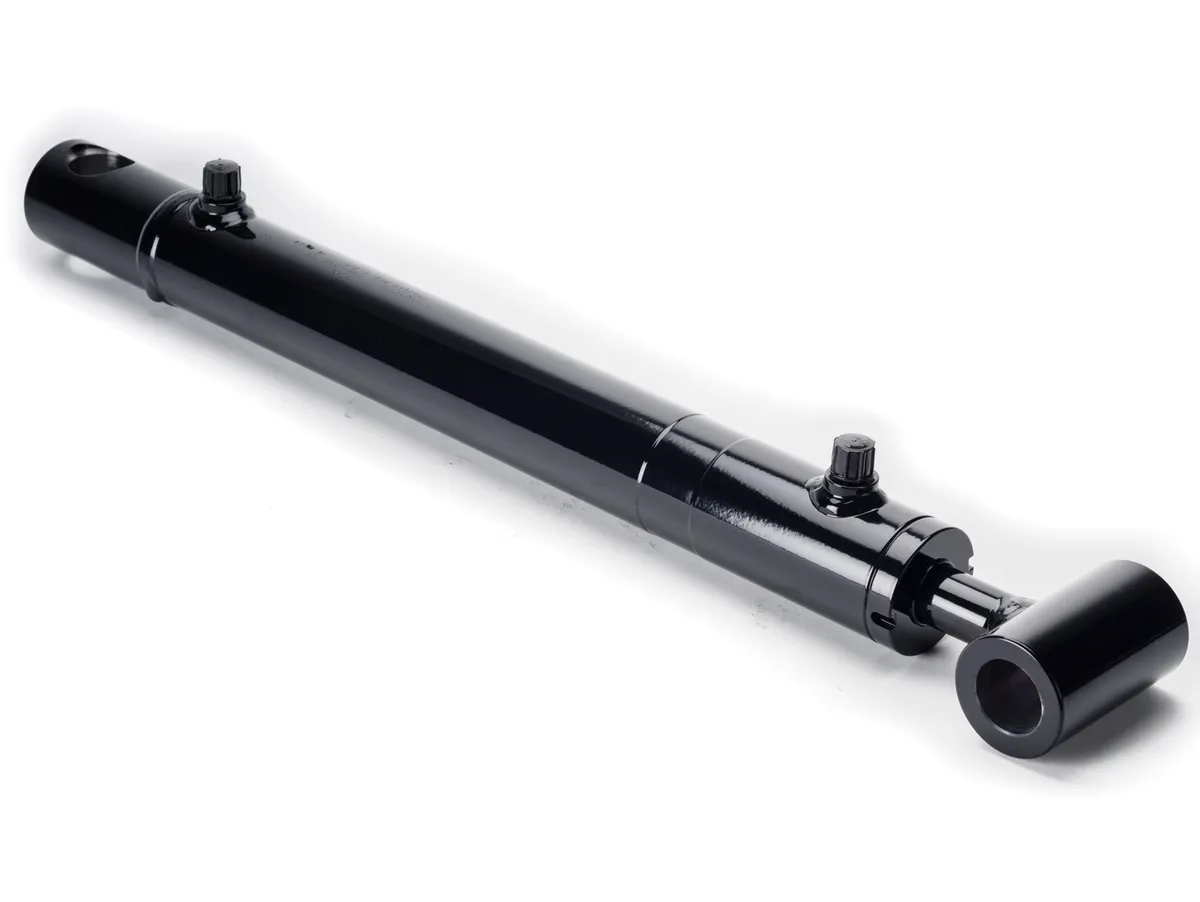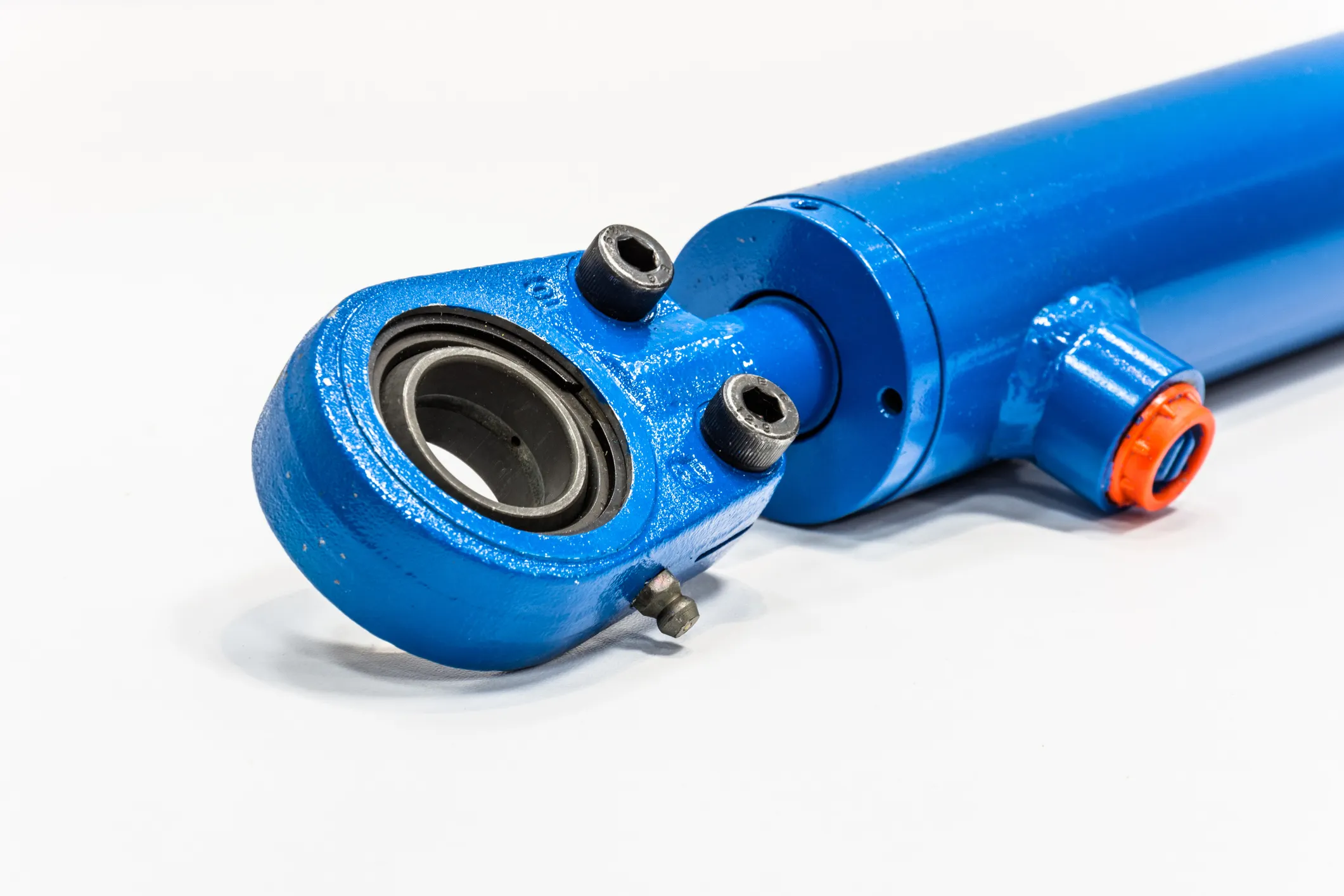Industrial Hydraulic Cylinder Corrosion Resistance
Understanding the Hydraulic Cylinder in the Industrial Environment
Industrial hydraulic cylinders play a crucial role in various industrial applications, providing the necessary force to move heavy loads with precision and efficiency. These hydraulic cylinders are essential components in machinery and equipment used in manufacturing, construction, mining, agriculture, and other industrial sectors.
Key Components and Structure
The hydraulic cylinder consists of a cylinder barrel, piston, piston rod, seals, and other components. The cylinder barrel houses the piston and acts as a pressure containment vessel. The piston divides the cylinder into two chambers, the rod side, and the cap side, with the piston rod extending from the piston and attaching to the load. Seals prevent fluid leakage and maintain pressure within the cylinder.
Principle of Control Cylinder Operation
The operation of hydraulic cylinders is based on the principle of Pascal’s law, which states that pressure exerted anywhere in a confined fluid is transmitted equally in all directions. When hydraulic fluid is pumped into one chamber of the cylinder, it pushes the piston, creating linear motion that moves the load attached to the piston rod.
Types of Hydraulic Cylinders
There are different types of hydraulic cylinders commonly used in industrial applications, including:
Single Acting Cylinders

Single acting cylinders use hydraulic pressure to extend the piston, with an external force, such as gravity or a spring, retracting the piston. These cylinders are commonly used in applications where the load is lifted or lowered by gravity.
Double Acting Cylinders
Double acting cylinders use hydraulic pressure to extend and retract the piston, providing bi-directional force for pushing and pulling applications. These cylinders are versatile and widely used in various industries.
Telescopic Cylinders
Telescopic cylinders consist of multiple nested stages that extend and retract to provide long stroke lengths in a compact design. These cylinders are used in applications where space is limited but a long stroke is required.
Differential Cylinders
Differential cylinders have different areas on the rod and cap sides of the piston, providing unequal extension and retraction speeds. These cylinders are used in applications requiring precise control of movement.
Advantages of Industrial Hydraulic Cylinders
Industrial hydraulic cylinders offer several advantages, including:
1. High Power Density
Hydraulic cylinders can generate a high amount of force in a compact design, making them ideal for applications where space is limited.
2. Precise Control
Hydraulic cylinders provide precise control over movement, allowing for accurate positioning of loads with minimal effort.
3. High Corrosion Resistance
Corrosion-resistant hydraulic cylinders are essential for operations in harsh environments where exposure to corrosive substances can damage conventional cylinders.
4. Long Service Life
Proper maintenance and care of industrial hydraulic cylinders can extend their service life, providing reliable performance over an extended period.
5. Versatility
Hydraulic cylinders can be customized to suit specific applications, offering flexibility and adaptability in various industrial settings.
Applications of Industrial Hydraulic Cylinders
Industrial hydraulic cylinders are widely used in various industries, including:
Manufacturing
In manufacturing, hydraulic cylinders are used in assembly lines, material handling equipment, and robotic systems to automate processes and improve efficiency.
Construction
In construction, hydraulic cylinders are used in cranes, excavators, and lifting equipment to move heavy loads and perform construction tasks with precision.
Mining
In mining, hydraulic cylinders are used in mining equipment such as hydraulic shovels, loaders, and dump trucks to handle large volumes of material efficiently.
Agriculture
In agriculture, hydraulic cylinders are used in farming machinery, irrigation systems, and harvesting equipment to enhance productivity and streamline agricultural operations.
Other Industrial Sectors
Hydraulic cylinders are also utilized in industries such as oil and gas, aerospace, and automotive for various applications requiring reliable force and motion control.
Selecting the Right Industrial Hydraulic Cylinder
When selecting an industrial hydraulic cylinder for a specific application, factors such as load capacity, stroke length, bore size, operating pressure, and mounting options should be considered. Matching the performance of the hydraulic cylinder to the requirements of the application is essential for optimal performance and longevity.
Maintenance and Care of Industrial Hydraulic Cylinders
Regular maintenance and care of industrial hydraulic cylinders are crucial to ensure optimal performance and prevent downtime. Inspection, lubrication, and cleaning are key practices to maintain the integrity and functionality of hydraulic cylinders.
Installation Guide
Proper installation of industrial hydraulic cylinders is essential for safe and efficient operation. Following manufacturer guidelines and ensuring correct alignment, mounting, and connection of components is necessary to prevent issues and ensure reliability.

Maintenance Tasks
Cleaning
Cleaning hydraulic cylinders regularly helps prevent contamination and maintain optimal performance. Use a non-abrasive cleaner and inspect for any debris or build-up that may affect operation.
Lubrication
Lubricating hydraulic cylinders with the appropriate fluid helps reduce friction and wear, ensuring smooth operation and extending the service life of the components.
Checking Wear
Regularly check hydraulic cylinders for signs of wear, such as leaks, dents, or corrosion. Addressing wear issues promptly can prevent further damage and maintain the performance of the cylinder.
Fault Diagnosis and Common Problems
Common issues with hydraulic cylinders include leaks, seal failures, piston rod damage, and fluid contamination. Proper diagnosis and troubleshooting techniques are essential to identify and resolve problems effectively, minimizing downtime and maximizing productivity.
Preventive Measures
To minimize potential problems and optimize the performance of industrial hydraulic cylinders, preventive measures such as regular maintenance, monitoring, and timely repairs should be implemented. By following best practices and addressing issues proactively, the longevity and efficiency of hydraulic cylinders can be ensured.
Choosing the Right Industrial Hydraulic Cylinder
When selecting an industrial hydraulic cylinder, factors such as operating conditions, load requirements, space constraints, and application specifics should be considered. Exploring these factors in depth can help determine the most suitable cylinder for a particular industrial operation, ensuring optimal performance and reliability.
Long-Tail Keywords and SEO Articles
Industrial hydraulic cylinders are essential components in various industries, providing reliable force and motion control for a wide range of applications. By focusing on long-tail keywords related to corrosion resistance, performance optimization, and preventive maintenance, targeted SEO articles can enhance visibility and engagement with relevant audiences.
Company Focus: Leading Manufacturer of Hydraulic Cylinders
Our company is a renowned manufacturer and distributor of industrial hydraulic cylinders, offering a comprehensive product line and customized solutions for diverse industrial applications. With professional expertise, international certifications, state-of-the-art production facilities, and dedicated after-sales service, we have established ourselves as a trusted partner in the hydraulic industry.
Author: lyl
